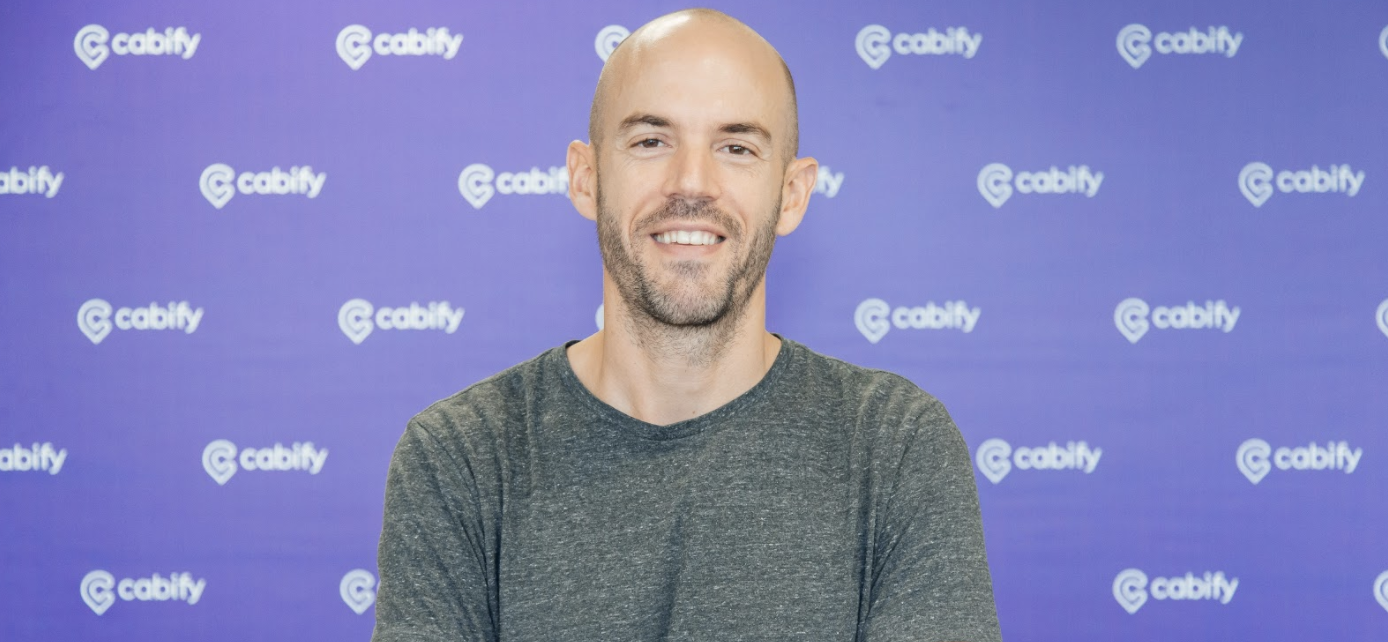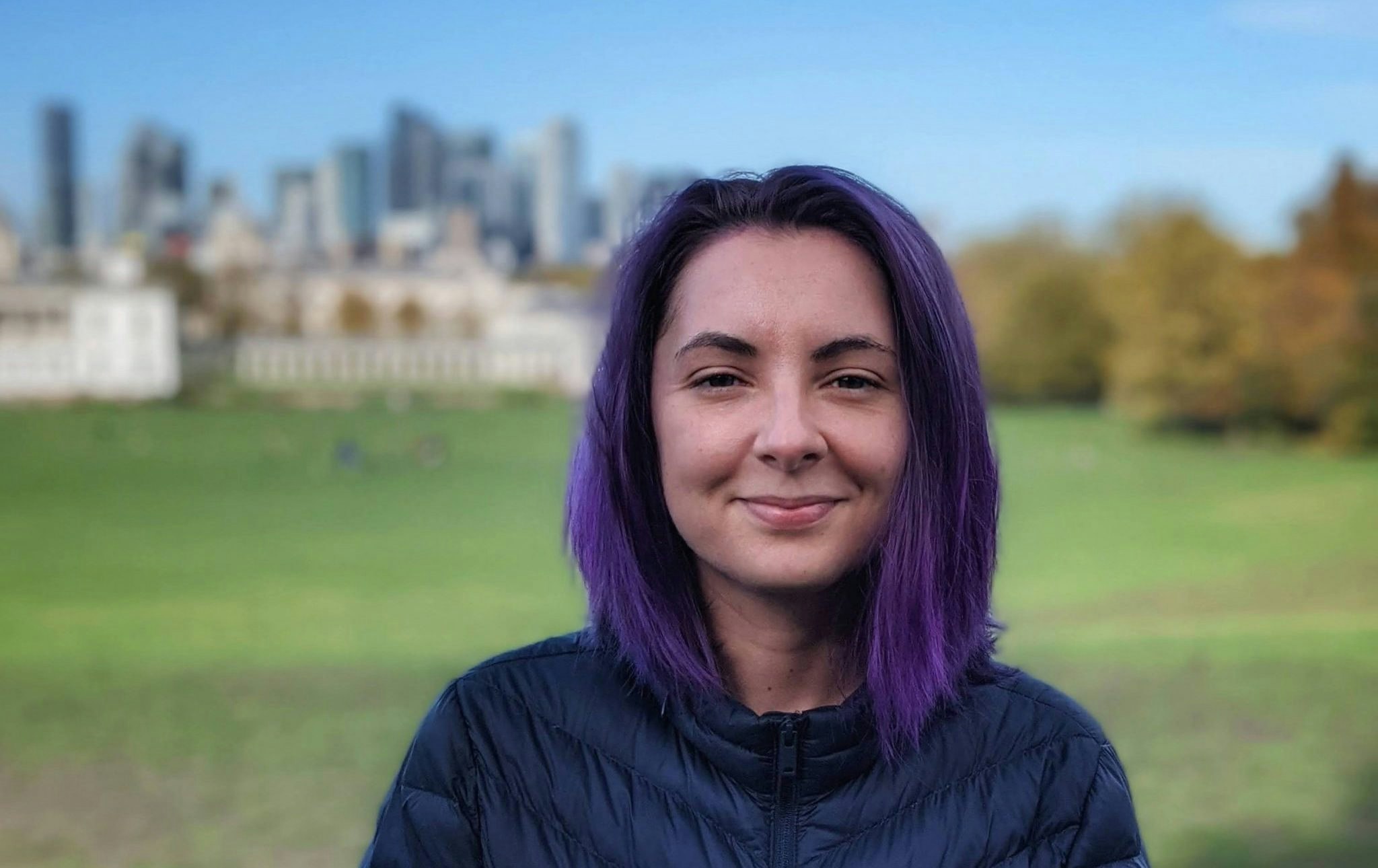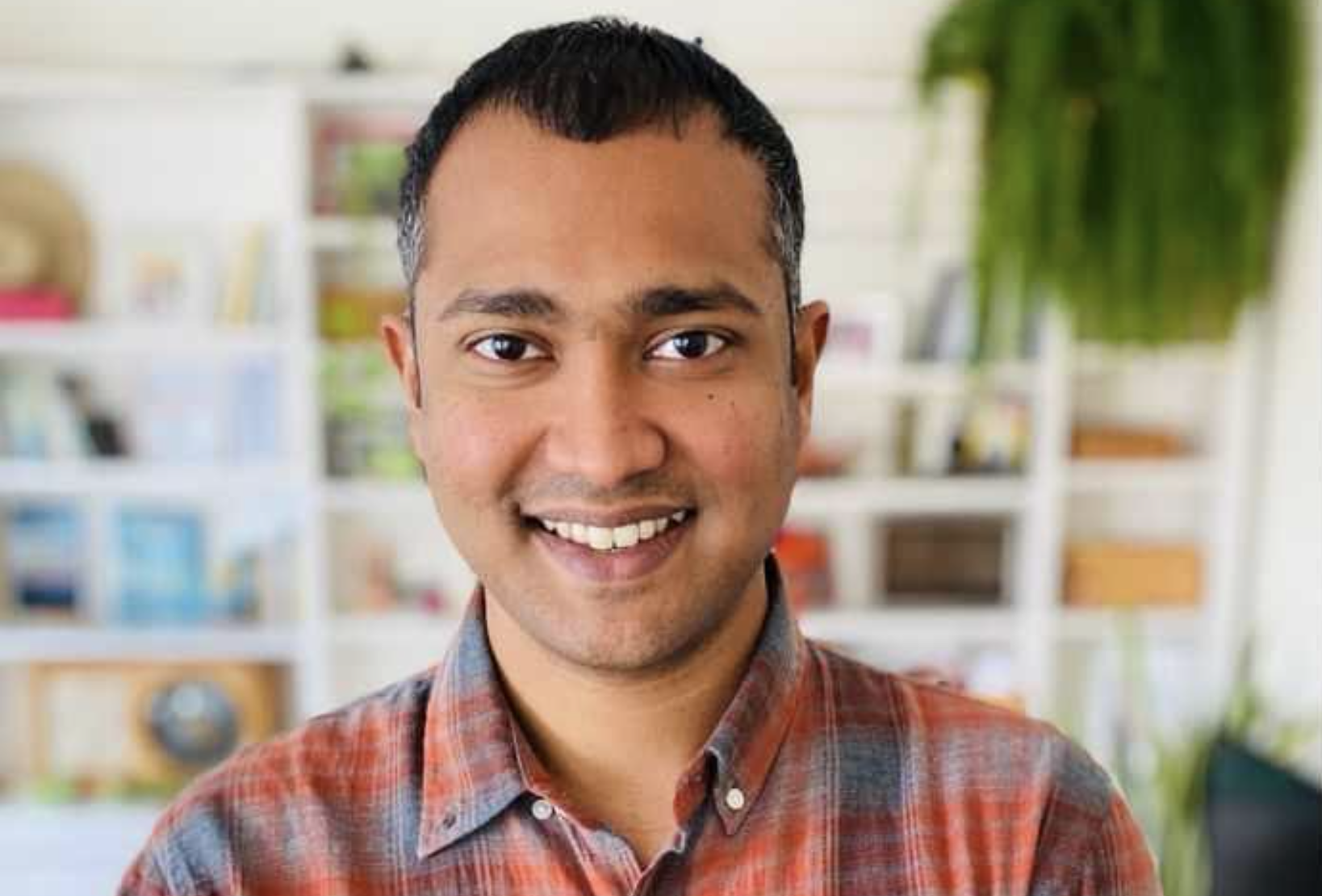Earlier in the year, Cabify confirmed what many have been rumouring for some time: that it is actively preparing to be publicly listed on the Madrid stock exchange.
It will be the latest milestone for the 10-year-old company — which has grown from a little taxi app to one of the biggest tech companies in Spain.
But the company has also hit another more subtle milestone: it has now been around for long enough to see the next generation of Spanish startups.
Dozens of former Cabify employees are taking what they’ve learnt at the company and starting their own ventures.
Sifted reached out to Cabify’s employees-turned-entrepreneurs, and picked some of the most exciting businesses in everything from e-groceries to ethical fashion.
Meet them here.
Courtney McColgan — Runa 
Cabify days
McColgan joined Cabify in September 2014, shortly after the company’s $8m Series A round, working as chief marketing officer for three years.
What she’s doing now
McColgan started working on Mexico-based payroll management platform Runa in October 2017, launching the service in January of the following year as part of the Y-Combinator programme. She is the founder and CEO.
How it’s going
Runa has so far raised $24.5m in Series A and B funding, been selected as a LinkedIn top startup twice and was Salesforce Ventures’ first investment in LatAm.
What’s next?
Runa has just launched a new 'salary-on-demand' product in Mexico, and is working on plans for a launch in Brazil “very soon”.
Ricardo Weder — Jüsto
Cabify days
Weder joined Cabify back in January 2015 and held numerous roles including country manager for Mexico, global head of growth, chief operating officer, and finally global president.
What he’s doing now
Weder left Cabify in June 2019 to found the online, delivery-only supermarket chain Jüsto, based in Mexico City.
How it’s going
Jüsto raised $100m in its first 16 months of operations and Weber says it secured the biggest seed round and Series A round ever in Latin America (the Series A was $65m, led by General Atlantic).
The company grew its revenue 16 fold in 2020, showing that customers are starting to get as excited about Jüsto as its investors.
What’s next?
Weder has big plans and says that Jüsto is “going to become the preferred e-grocer of LatAm before 2030.”
Mario Carranza — Vamos
Cabify days
Carranza joined Cabify pre-launch in 2011 as the startup’s fourth employee. He established the company’s early sales and marketing efforts, before leaving a year later.
What he’s doing now
Since 2019 Carranza has been building Vamos, a Madrid-based long-term car rental platform. Vamos is hoping to disrupt the traditional car ownership model, by taking out one-off payments and bundling insurance, taxes and maintenance into the rental price.
How it’s going
Carranza says Vamos has become the clear leader in the car-as-a-service Spanish market, having delivered more than 3k vehicles to customers, and become cash flow positive in its first year. The startup now has a team of 50 people and the backing of investors including FJ Labs, Axel Springer, Martin Varsavsky and Iñaki Berenguer.
What’s next?
Carranza says that, after getting a significant head start in the Spanish market, Vamos will be executing its European expansion plan starting in 2022.
Jesica Alcalde — FuelYourBrands
Cabify days
Alcalde joined the Cabify team in September 2016, when the startup was going through a fast expansion phase. She was appointed as marketing manager in Seville, the strategic hub for the company’s early operations in Andalucia.
What she’s doing now
Alcalde started working on micro-influencer marketing platform FuelYourBrands in March 2020, launching the service in November 2020. The startup aims to make influencer marketing affordable for smaller businesses, and says that 'micro-influencers' (with 3k to 80k followers) create better brand loyalty than bigger accounts.
How it’s going
So far, FuelYourBrands has been completely sustained with Alcalde’s personal funds, and she says the project is now self-sustaining financially. She tells Sifted she’s very proud to have reached break even within such a short period of activity, by creating a marketplace that is useful to both companies and micro-influencers.
What’s next?
Alcalde says her team has already started discussions with investors and VCs about possible participation in the project. She adds that her dream is to strengthen the company’s presence in Spain and Mexico, and later expand to other LatAm countries.
Sam Lown — Invopop
Cabify days
Lown joined the ride hailing startup as founding chief technical officer in 2011. He remembers working with founder Juan de Antonio in his living room in the days before the company was even called Cabify.
What he’s doing now
Lown left Cabify to found the LatAm-focused fintech startup Lana in 2017. In 2020 he left Lana to start working on Invopop, a platform that aims to make it easier for developers to generate invoices.
How it’s going
Lown says the founding journey has felt very different to his early days at Cabify, particularly due to the investor landscape in Spain. “It's so much more competitive for investors now, which is great for founders,” he says. Invopop has raised a €550k pre-seed round and is currently a team of three engineers and one designer. Lown says the team is focusing on creating a great product while working at a “much less frantic pace.”
What’s next?
Lown says his plan is to get Invopop’s base product working and quickly start working on a business model that will allow the startup to operate in as many countries as possible. He says one of the most challenging but enjoyable aspects of working at Cabify was creating a global product adapted to local markets, and he’s excited to try and replicate that success.
Javier Arronte — Malapascua
Cabify days
Arronte joined Cabify in April 2017 and worked in the global digital marketing team as a paid media specialist for two years, focusing on driver acquisition. Later, he moved into a “channel market fit” role, helping align Cabify’s local design teams with the global digital marketing operation.
What he’s doing now
Arronte left Cabify in December 2019 to found ethical fashion brand Malapascua, which he started working on in February 2020. The site sells clothing made from sustainable and recycled materials, hoping to appeal to conscious consumers.
How it’s going
Arronte says it’s been a steep learning curve getting into the world of fashion, particularly during the pandemic. But the company has already enjoyed some exciting moments, styling Spanish comedian Dani Rovira for his Netflix special, and appearing in publications like Woman and El Economista.
What’s next?
Malapascua is currently seeking public funding through funds like Enisa’s soft loan programme, and Arronte tells Sifted it will seek private funding once the business begins to mature. The company aims to grow its production by 150% in 2022.
David Smyth — Complish
Cabify days
Smyth joined Cabify in 2014 as the startup’s first product hire, going on to become head of product, then VP of product. Smyth also helped lead and establish the early product, engineering, design and research teams at the company.
What he’s doing now
Smyth left Cabify in 2019, before founding his own venture in 2020: a platform that aims to help remote teams spend less time in meetings.
How it’s going
Complish closed a $880k pre-seed round last year, after what Smyth describes as “strong early growth and great user retention.” He says he’s enjoying life as a founder, being hands on with everything from design to marketing and sales.
What’s next?
Smyth says Complish is continuing to build out its team and add new integrations to the product, while getting ready for a new fund raise at the end of this year.
Agustin Guilisasti — Human Forest
Cabify days
Guilisasti joined Cabify in June 2012, as the startup’s fifth employee and its first in Latin America — working as country manager working to launch the business in Chile. He remembers growing the operation to become one of Cabify’s most successful markets with 50k active drivers. After establishing operations in Chile, he went on to help launch Cabify’s business in other LatAm countries.
What he’s doing now
Guilisasti says he wasn’t planning on leaving Cabify, but took a sabbatical two years ago to study a masters degree in data science in London. While he was there he decided to found Human Forest, a zero-emissions e-bike micro mobility company where every user gets a 10 minute free ride every day. All the e-bikes batteries are charged from certified renewable energy sources.
How it’s going
Human Forest was born before the start of the pandemic, but Guilisasti says the business model has been strengthened by structural changes since Covid-19 arrived. The startup now has e-bikes ready to deploy in London, after raising a £1.8m seed round, and claims to have saved 20 tonnes of CO₂ emissions during its three-month trial period.
What’s next?
Guilisasti tells Sifted that Human Forest is “in the middle of a £1.6m pre Series-A round,” and that the new funds will be used to grow faster than planned. He says London is underserved when it comes to e-bikes and that once Human Forest is fully operational in the city, then they’ll launch a Series A round to fund international expansion.
Raúl Marcos — Carbono
Cabify days
Marcos joined Cabify in January 2017, working as a backend developer at the company, before moving on in November of the same year to work as an advisor and investor in crypto currencies.
What he’s doing now
After leaving Cabify, Marcos used his crypto expertise to found Carbono, a Singapore-Malaysia-based crypto asset management and advisory firm.
How it’s going
Marcos says that the last four years working in crypto have been incredibly rewarding. Carbono has started working with family offices in Europe and South-east Asia, helping them invest in crypto. In 2018 the company launched Abacus Carbono, the startups own investment fund.
What’s next?
With four years experience working in crypto, Marcos says Carbono is well placed to capitalise on the current interest in the space. He says he and the team plan to keep onboarding more investors, with a focus on South-east Asia.
René Galindo — blank.page
Cabify days
Galindo joined Cabify in January 2016 as the startup’s second design hire. He was lead product designer, working on the mobile apps and the company’s purple rebrand and redesign.
What he’s doing now
After a stint working on Cabify’s scooter platform Movo, Galindo went on to work at LatAm fintech Lana. In the summer of 2018 he began work on blank.page, a minimal web-based text editor, designed for creative writing which also offers writing courses.
How it’s going
Galindo says the journey has been “more of a spiral than a straight line,” as the company has “dabbled back and forth” between the content-based writing courses, and developing the text editor. He says the company is trying to bootstrap as far as possible, and has launched several writing courses in the past year.
What’s next?
Galindo is now working on reshaping blank.page to have a more B2B focus, and says time will tell if the company can bootstrap its way to profitability, or if the startup will need to seek funding.
Petter Palander — The Climate Action Agency
Cabify days
Palander worked as a UX/UI consultant at Cabify between February and November 2012, designing the consumer and driver apps for web, iOS and Android, as well as the main website.
What he’s doing now
Palander founded The Climate Action Agency in 2019, a consultancy which helps businesses align with the Paris Climate Agreement objectives.
How it’s going
Building The Climate Action Agency has been full of ups and downs, according to Palander, but he says he’s grateful for the experience that being a founder has given him.
What’s next?
Palander says his main focus is to get as many companies as possible to align their goals to those of the Paris Agreement, and to limit global warming to 1.5°C through science-based targets.


